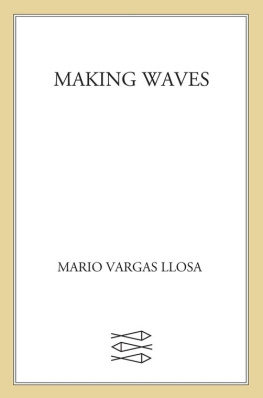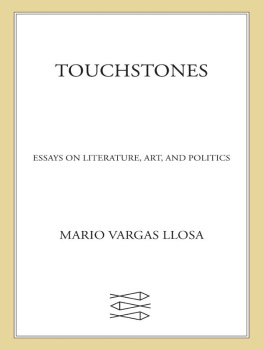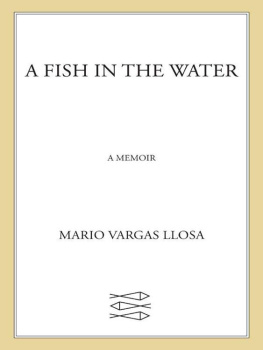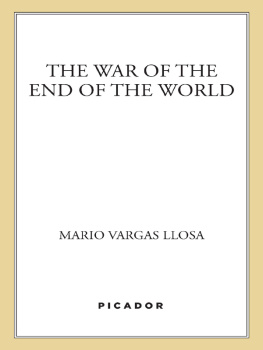Coleccin Tmesis
SERIE A: MONOGRAFAS, 331
A COMPANION TO
MARIO VARGAS LLOSA
This Companion to the work of Peruvian Nobel Laureate Mario Vargas Llosa traces his fictional and non-fictional writing throughout the different phases of a career spanning more than fifty years. Against the backdrop of his intellectual and political development the study highlights the continuities and interrelations that give unity and coherence to a diverse body of work in which the novels stand out for their combination of passionate storytelling and technical complexity.
Tamesis
Founding Editors
J. E. Varey
Alan Deyermond
General Editor
Stephen M. Hart
Series Editor of
Fuentes para la historia del teatro en Espaa
Charles Davis
Advisory Board
Rolena Adorno
John Beverley
Efran Kristal
Jo Labanyi
Alison Sinclair
Isabel Torres
Julian Weiss
SABINE KLLMANN
A COMPANION TO
MARIO VARGAS LLOSA
TAMESIS
CONTENTS
PREFACE
The Nobel Prize in Literature 2010 for Mario Vargas Llosa was the culmination of a long and illustrious career, in the course of which he has become famous for his novels, but also notorious for his (often polemical) participation in intellectual and political debates. Both areas of his writing, fiction as well as essays and journalism, are ongoing endeavours which he pursues with the same vigour today as he did fifty years ago. The aim of this book is to provide readers with an overview and a general evaluation of Vargas Llosas large body of work, and to discuss the contradictory reactions which he provokes.
This Companion differs from the approach of other introductions to Vargas Llosa which divide his work into different phases, corresponding to the changes in his political opinion. It challenges the received opinion about his notorious development: supposedly from a youthful Marxist writer, supporter of the Cuban revolution, who wanted literature to play a part in radical social change, to a liberal, right-wing propagandist of free-market politics who, nonetheless, continues to produce great literature that manages to transcend his political opinions. By contrast, this book highlights the many continuities in his long writing career: within his fiction, it follows recurring themes, formal features and patterns of language three main factors, according to Vargas Llosas theory, in transforming reality into fiction. In terms of literatures role in society it shows the continuity between his famous early statement that literature is fire and the importance he ascribes to fiction in his Nobel Lecture, as a rebellious force encouraging a critical, nonconformist spirit.
The of this book discusses Vargas Llosas literary theory and criticism as it has developed over the years. This is complemented by a survey of his political essays and journalism, highlighting his conception of the dual role of writer and intellectual.
The trying to find a way of reproducing the slang of youth gangs, the jargon of the military, popular language, and the melodrama of radio serials.
An important point in Vargas Llosas approach to literature is his ambition to encompass the complexity of reality in a work of fiction. A highlight in his quest for the total novel is the 1981 La guerra del fin del mundo [The War of the End of the World] which successfully combines technical and structural complexity with a way of telling a story that can be read on many different levels: as an adventure story, a historical novel, but also as a political novel integrating his strong anti-ideological convictions into an immensely rich narrative.
After this central masterpiece, the focus of Vargas Llosas fiction shifted to experimenting with different genres: erotic fiction, thrillers, writing about art (ekphrasis), a reworking of Greek myths, metafiction, and not least the memoirs that his political interlude engendered. The study highlights common themes that run through this very diverse body of work, giving it unity and coherence: authoritarianism, machismo, the father, the outsider, the relationship between reality and fiction, and the role of storytelling, to name just a few.
The last chapter devoted to Vargas Llosas narrative work demonstrates how La Fiesta del Chivo [The Feast of the Goat] of 2000 picked up a number of these diverse strands and reunited them with the totalizing ambition of his earlier novels. The analysis of this great dictatorship novel and of the novels that have followed it more recently, El Paraso en la otra esquina [The Way to Paradise] (2003) and El sueo del celta [The Dream of the Celt] (2010), reveals the extent of continuity and coherence in Vargas Llosas more than fifty years of writing.
In the of the book, a look at his theatrical work shows how Vargas Llosa transposes the topics that mark his narrative work to a different medium. This includes the ambiguities of reality and fiction which he explores on the stage, in recent years even as an actor himself.
complement this comprehensive overview of Mario Vargas Llosas work, which is aimed at enabling undergraduate and graduate students to evaluate the differing reactions to this by now canonic, but nonetheless controversial Hispanic author. For the general reader interested in the Nobel Prize winner this book provides an introduction to his complex and fascinating fictional universe, giving an idea of its unity, while adding essential information about his intellectual and political background.
Wherever possible I have used published English translations of quotations; the others are mine. The dates given for Vargas Llosas works in the text of this study refer to the year of their first publication and correspond to the at the end of this book, listing his works in chronological order of publication. But the page numbers of quotations in my text refer to the editions I have actually used, which are referenced in the footnotes.
INTRODUCTION
The Peruvian author Mario Vargas Llosa is one of the major Latin American literary figures of the last five decades. A prolific writer, he has so far published sixteen novels, some shorter narrative works, eight plays, a childrens book, five major critical studies of other writers, and a large number of essay collections concerning literature, politics and wider social and intellectual issues, many of which derive from the journalistic work that he has always pursued in parallel with his fictional writing. From the beginning of his career, literature and politics were two sides of his vocation as a writer that have coexisted and influenced each other.
Born in the Peruvian town of Arequipa on 28 March 1936, Mario Vargas Llosa spent a happy early childhood with his mother and her family in Cochabamba, Bolivia, where he learnt to read and write. Encouraged by his maternal family, he developed a passion for literature which would determine his whole life. He found that the magic of fictions opened up worlds, allowing him to break the barriers of time and space and to turn dreams into life and life into dreams. Although writing stories proved to be a difficult undertaking which required discipline, patience and lots of reading and imitating the great masters, he found it a delightful occupation. It was not until unhappiness disrupted his existence that reading and writing became a necessity, providing refuge and relief from the shock of his father, whom he had believed to be dead, re-entering his peaceful life. Mario was eleven years old and living in Piura when his mother revealed to him that his father was, in fact, alive and that they would move to Lima to live with him. In his Nobel Lecture Vargas Llosa describes how, from that moment onwards, literature became his reason for living (mi razn de vivir):

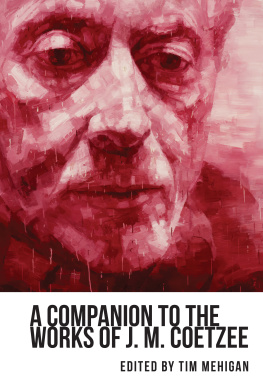
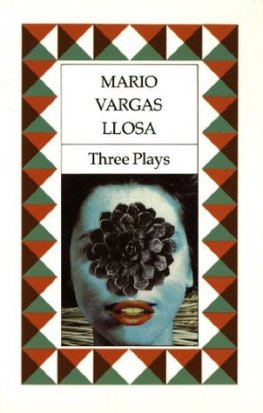
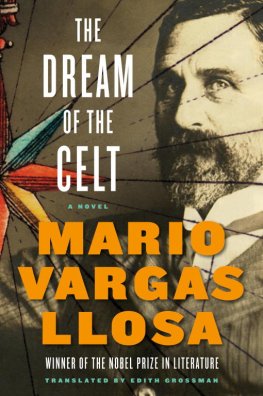

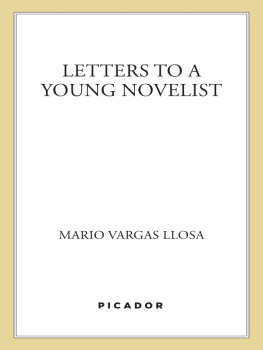
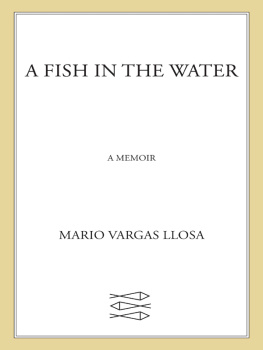
![Mario Vargas Llosa [Mario Vargas Llosa] - Captain Pantoja and the Special Service](/uploads/posts/book/142220/thumbs/mario-vargas-llosa-mario-vargas-llosa-captain.jpg)
